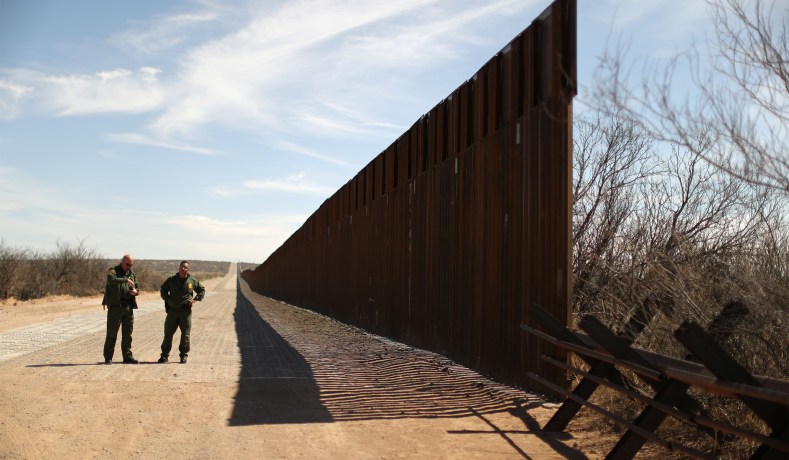[ad_1]

The Supreme Court has agreed to hear cases pertaining to two of the Trump administration’s most contentious policies: the use of Pentagon funds to construct a U.S.-Mexico border wall, and the “Remain in Mexico” policy mandating that asylum-seekers wait in Mexico while their cases are processed in the U.S.
The Court revealed in a routine order list on Monday that it would hear the cases, which could be among the first for Judge Amy Coney Barrett if Senate Republicans succeed in confirming her to the Court bench. Barrett’s confirmation would cement a 6-3 conservative majority on the Court.
Trump demanded funding for a border wall in the 2019 federal budget, but House Democrats refused to include such funding in the final legislation. The president initially declined to accept the budget without funding, leading to the longest federal government shutdown in U.S. history.
However, the president eventually signed a budget without funding for the barrier. The Trump administration instead diverted Pentagon funds towards construction of the wall. The funds have primarily been used to refurbish existing barriers, with 300 miles of barrier repaired or rebuilt and five miles of new barriers constructed during Trump’s term in office.
The Remain in Mexico policy, formally known as the Migrant Protection Protocols, has been widely criticized as placing asylum seekers in excessive danger. Under the policy, asylum seekers who cross the southern U.S. border illegally are required to wait in Mexican border towns while waiting for an immigration hearing. Those hearings have ceased entirely since the onset of the coronavirus pandemic in March.
Asylum seekers waiting in Mexico “face targeted discrimination, physical violence, sexual assault, overwhelmed and corrupt law enforcement, lack of food and shelter, and practical obstacles to participation in court proceedings in the United States,” wrote Judge William Fleitcher of the 9th Circuit Court of Appeals in a February injunction.
[ad_2]
Read the Original Article Here

